Casa Mutina displays Ronan Bouroullec's creative universe
Ronan Bouroullec's designs for Mutina at Milan Design Week 2024 include outdoor tiles as well as ceramic editions
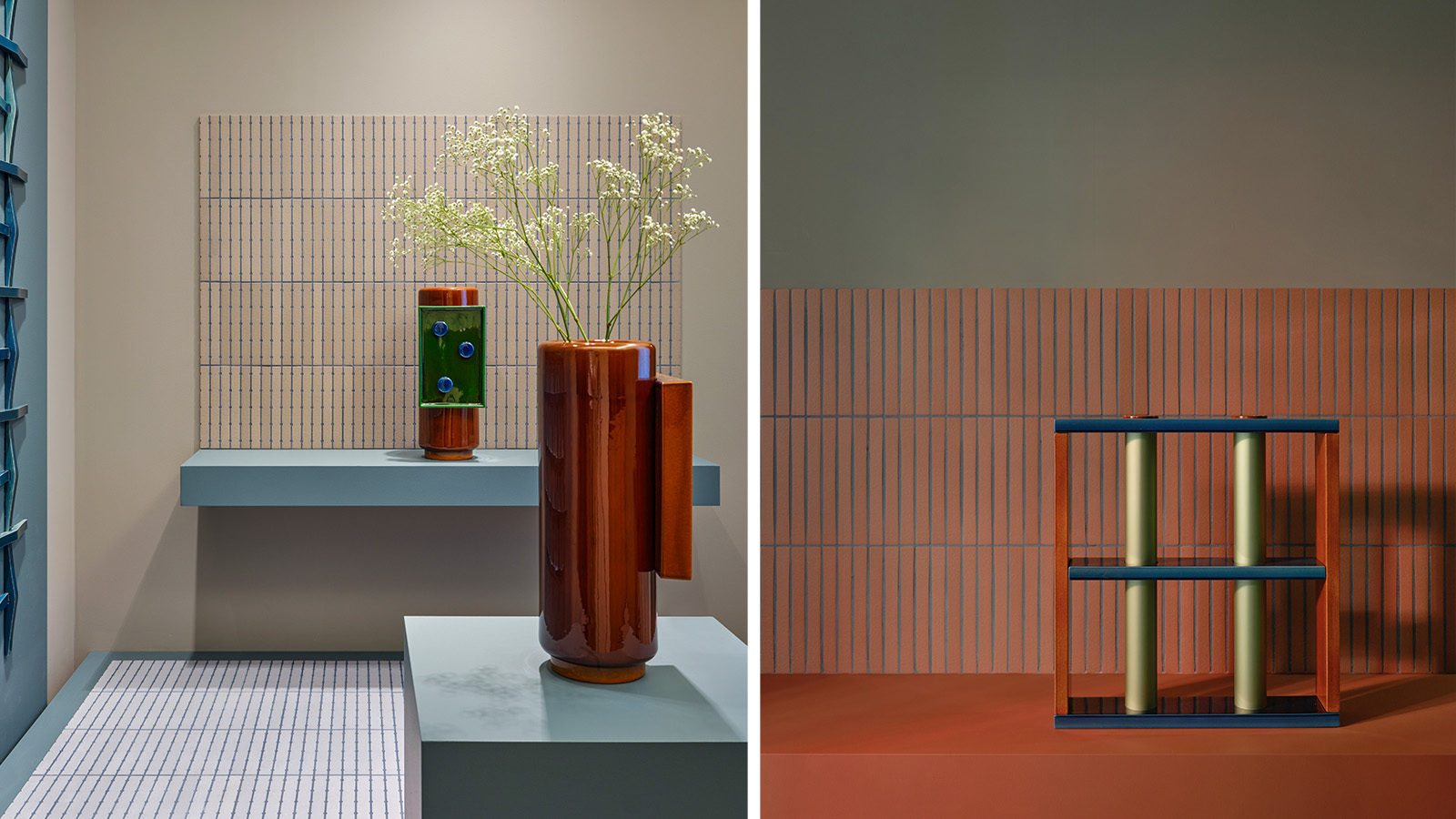
At Milan Design Week 2024, Mutina unveiled at Casa Mutina Milano and Spazio Cernaia a series of new collections entirely designed by Ronan Bouroullec, which are still on display (by appointment only) at Casa Mutina Milano.
‘This year, more than individual collections, we presented an entire universe. The Osso & Bottone represents Mutina's first collection specifically designed for outdoor environments,’ says Mutina CEO Massimo Orsini. ‘By tackling this challenge, we wanted to take a further step, extending our research beyond the classic boundaries of indoor spaces, proposing organic shapes in pastel colours in dialogue with nature. The true subject is the conjunction between the elements, the absent parts rather than the present ones, to make outdoor spaces more contemporary.’
Mutina tiles by Ronan Bouroullec
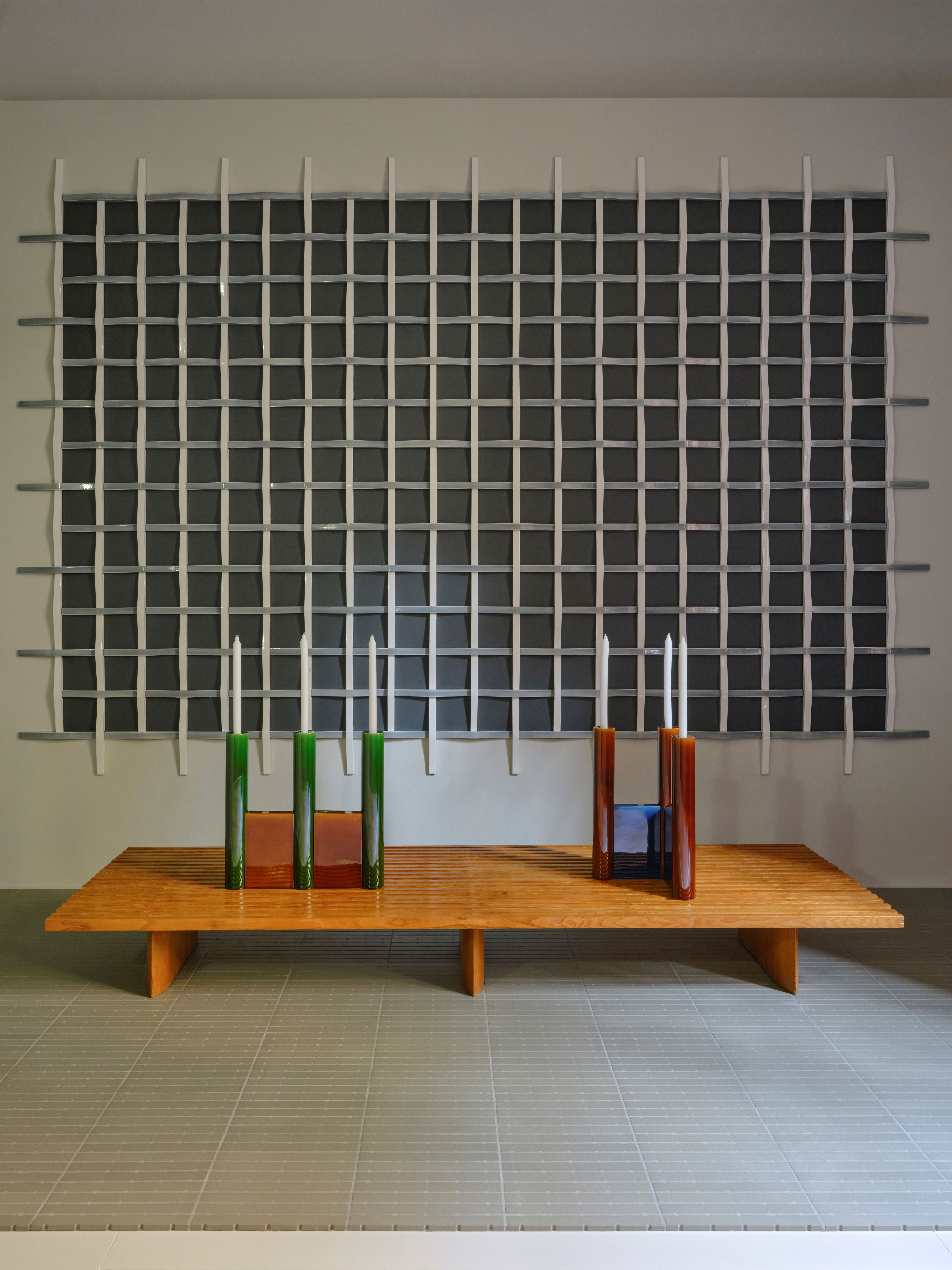
Adagio by Ronan Bouroullec for Mutina, on the wall behind his editions for the brand
Designed for dual use, Osso & Bottone are modules of rectangular tiles with perimeter cuts that create ample voids and reveal patterns through the joints: in particular, in this case at least 4 mm of joint is suggested, in order to keep the right distance especially for Bottone, so that you can to recreate the perfect circles, similar to buttons. It can be filled with grout in the same or contrasting colour to create a variety of effects. Also, because of the strong aesthetic, the tile edges are visible for the first time.
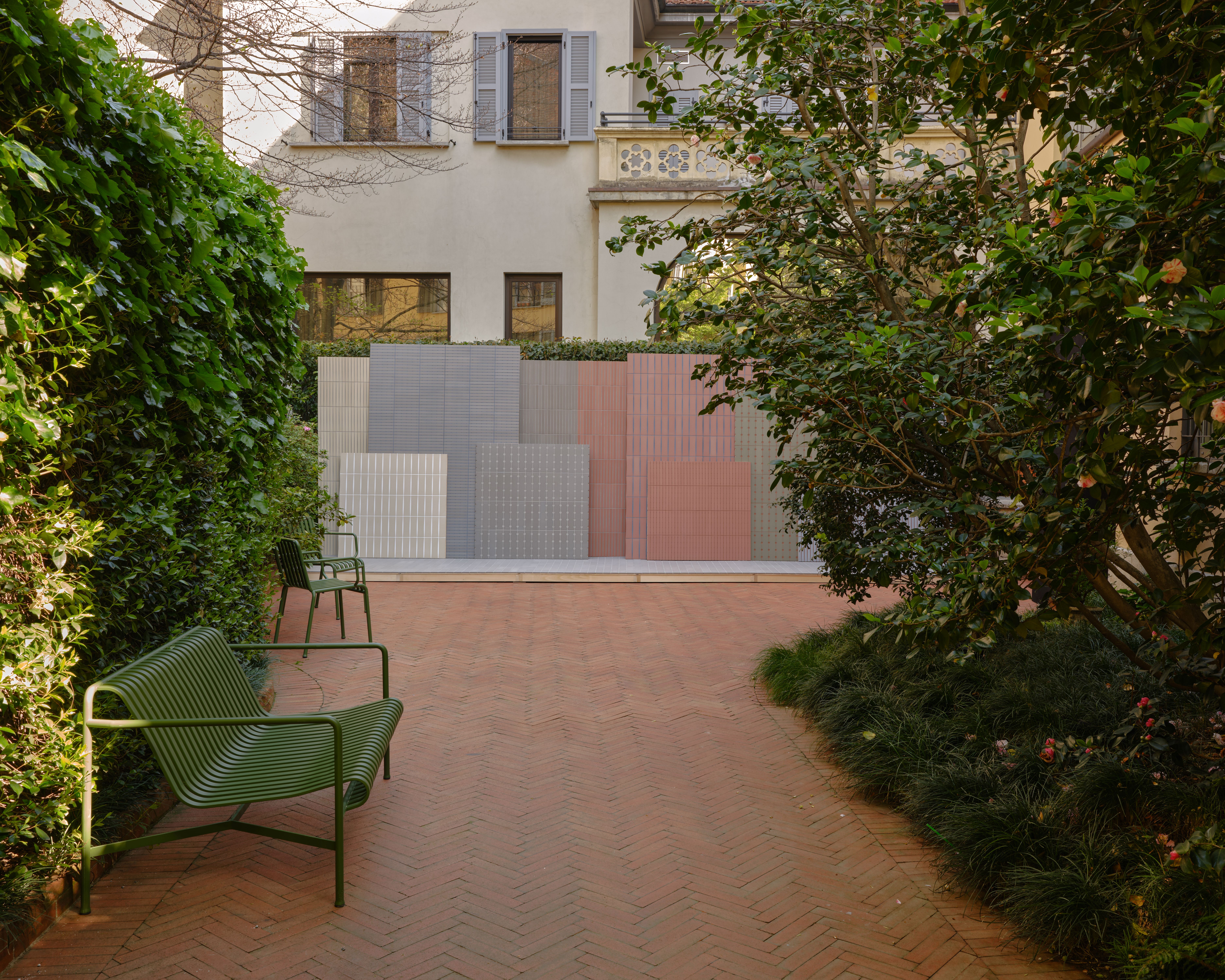
Adagio, a series of ceramic modules that can be assembled to create scenic wall sculptures, has also just been unveiled: a reticular structure resembling a fabric weave, with overlapping elements emphasising the product's three-dimensionality. ‘Adagio is an authentic wall sculpture, which I think (and hope) will revolutionise the perception of ceramics in the coming years,’ says Orsini. ‘And then many new Editions, such as vases and candleholders handmade by master craftsmen and produced in limited editions.’
Mutina showcases Ronan Bouroullec's Editions
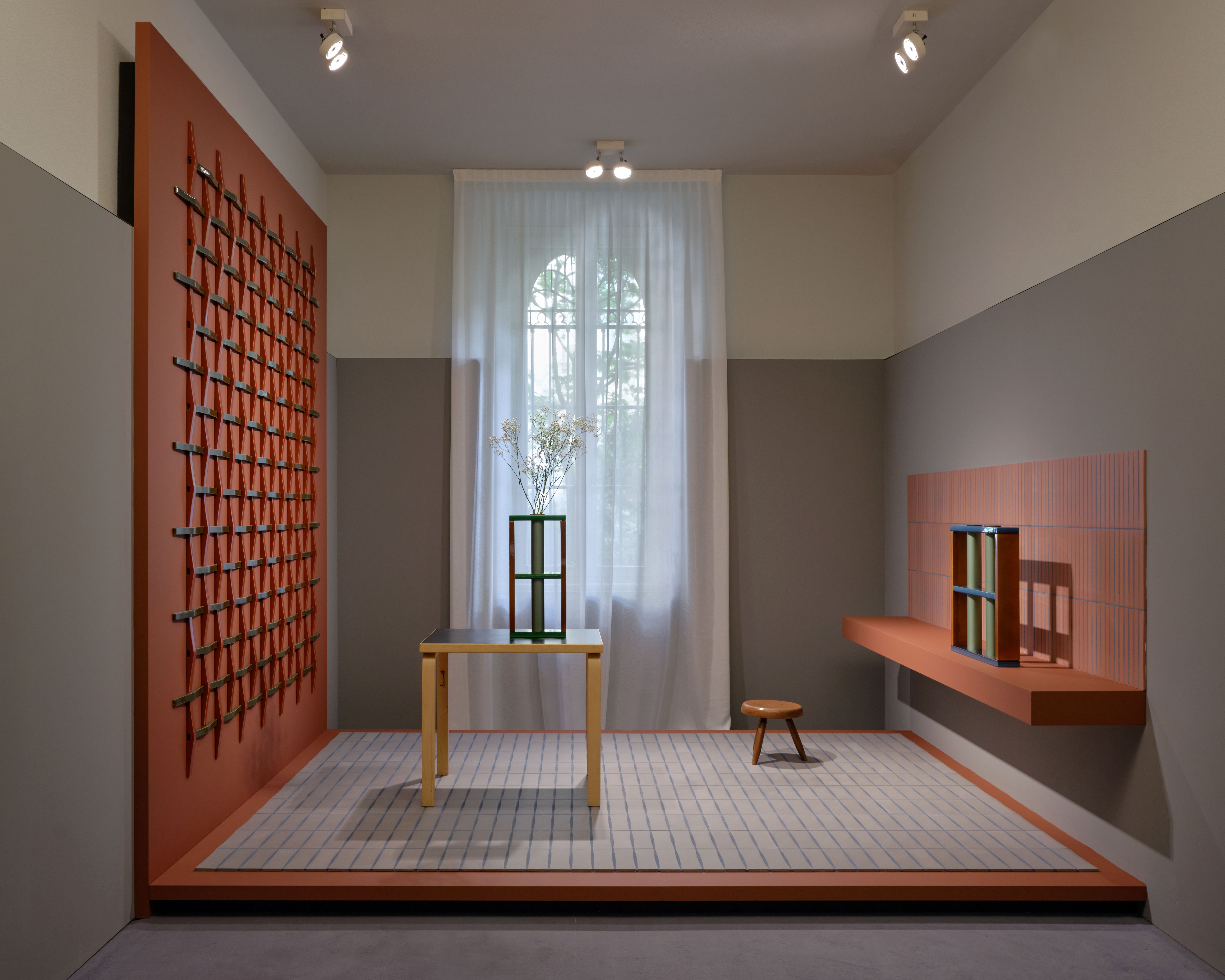
The way Mutina understands that somewhat mysterious aspect of ceramic, a material that has a unique and ever-changing beauty, it’s clear with Editions. As a collection of ceramic objects linked to the world of designer interiors, they are entirely handmade, with each piece sequentially signed and stamped. The series includes vases and a candelabrum that can be modulated in different combinations: they are all made by casting and assembling individual pieces, and the glaze is from an ancient formulation.
Ronan Bouroullec on his collaboration with Mutina

Some of the collections and objects were presented in advance during the Résonance exhibition curated by Marie-Ange Brayer at the Centre Pompidou in Paris, and Adagio, along with some products designed by Ronan with his brother Erwan for Mutina, has also become part of the permanent collection of the French museum: ‘I met Massimo 15 years ago, the owner of Mutina, he showed up at the workshop in a sweat with very heavy samples of tiles,’ Bouroullec wrote on his social media accounts. ‘He wanted so much to convince me to collaborate, he was very moved.'
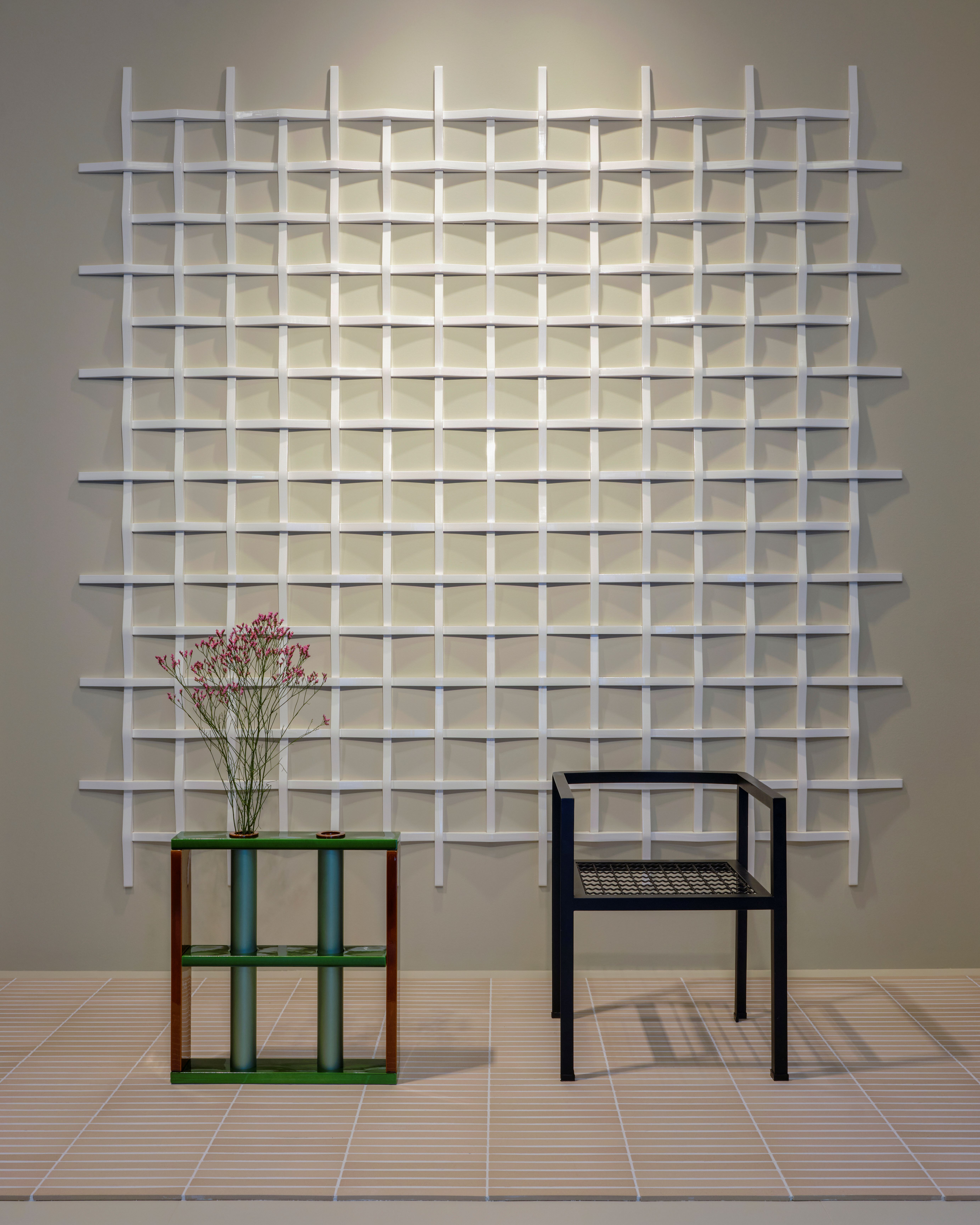
'Everything went wrong, he spilled his coffee on my drawings, he talked too much and he left even more nervous than when he arrived. He didn’t know it but I was immediately won over, this clumsiness charmed me a lot. It has been a super collaboration since then, he is one of the great Italian entrepreneurs, like Giulio Capellini, Piero Gandini and Eugenio Perazza, without whom nothing would have happened and with whom I have learned, and learn, so much.’
Wallpaper* Newsletter
Receive our daily digest of inspiration, escapism and design stories from around the world direct to your inbox.
Ronan Bouroullec, Mutina, 2024
Casa Mutina and Spazio Cernaia
Via Cernaia, 1A, Milan
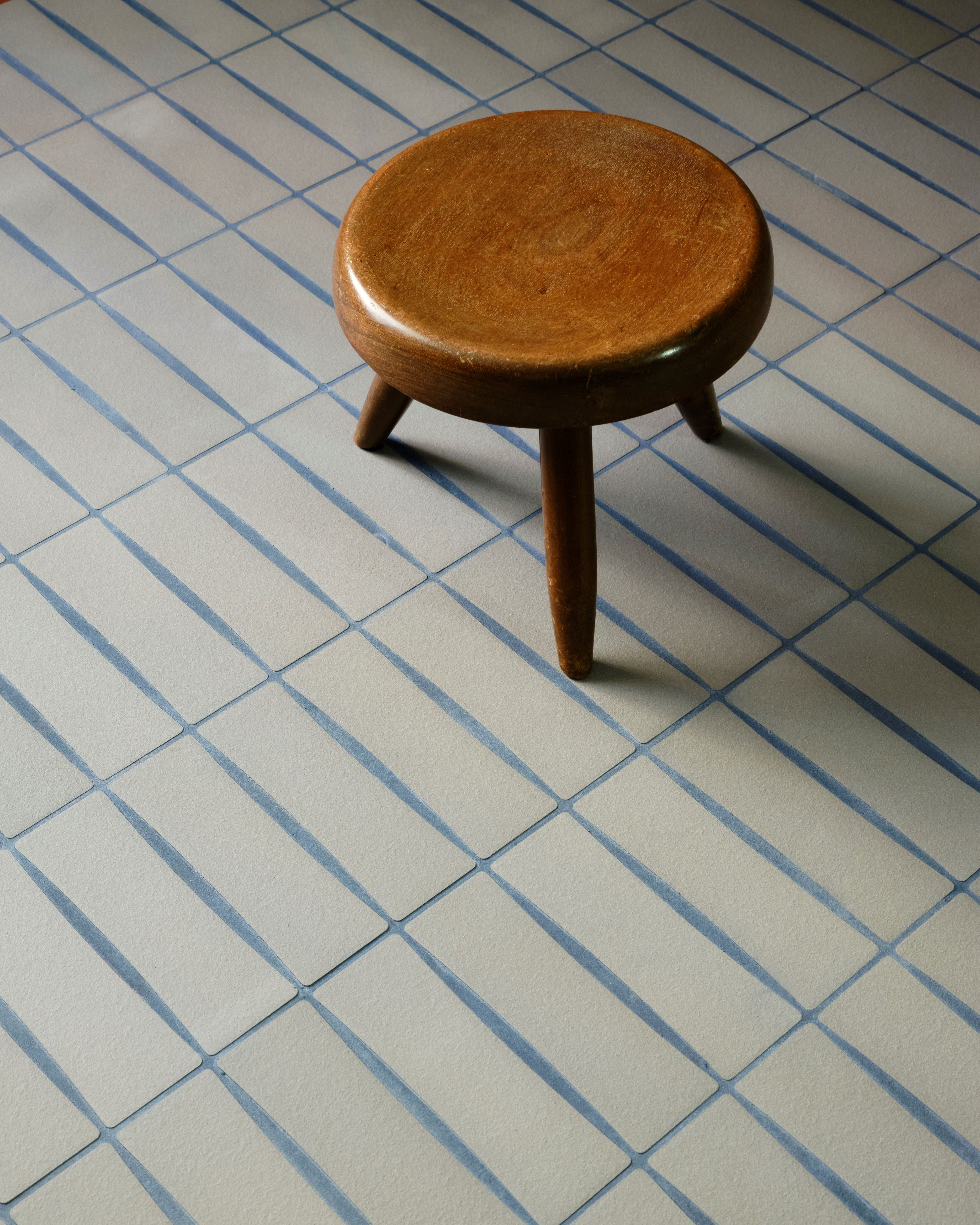
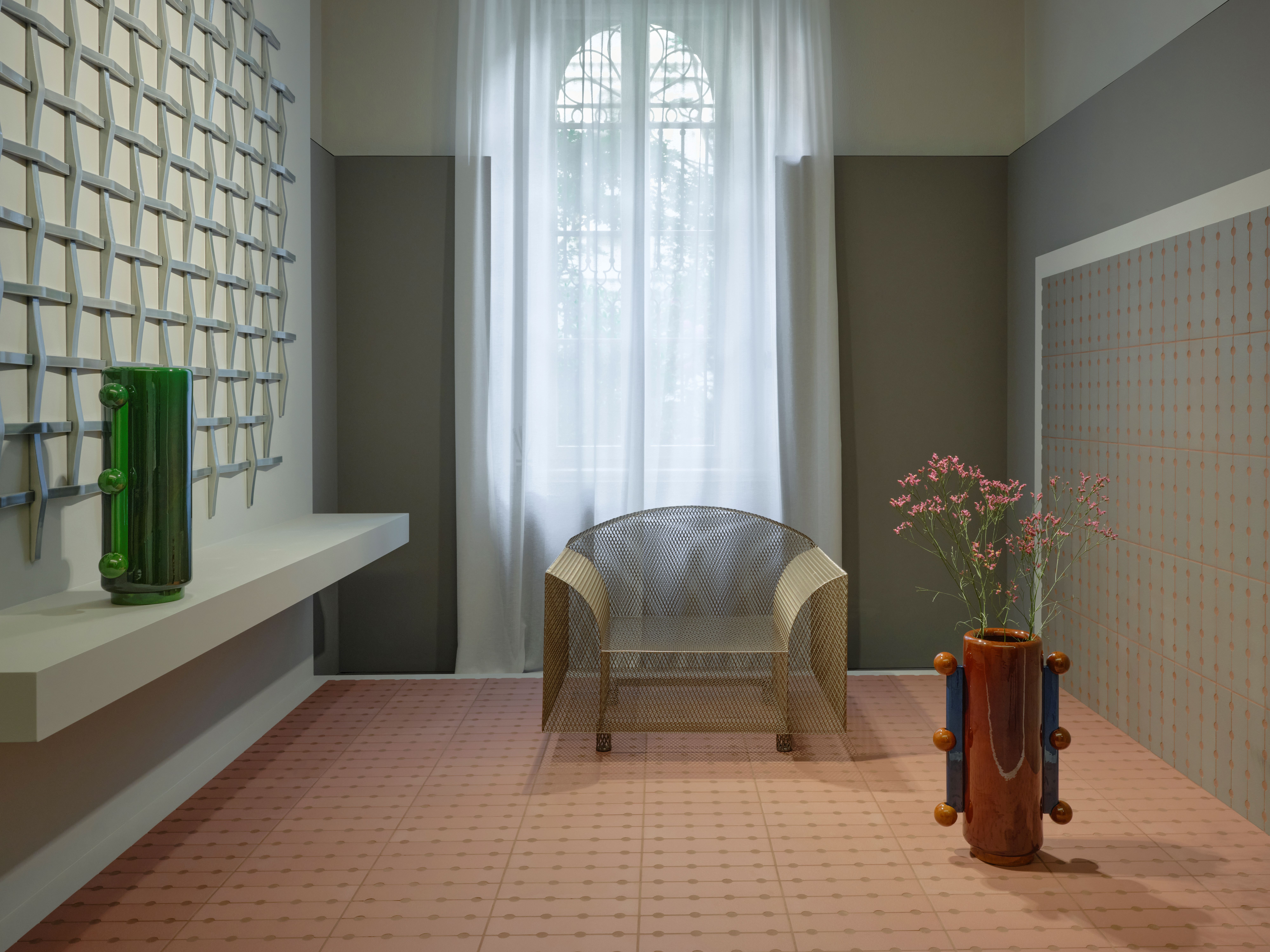
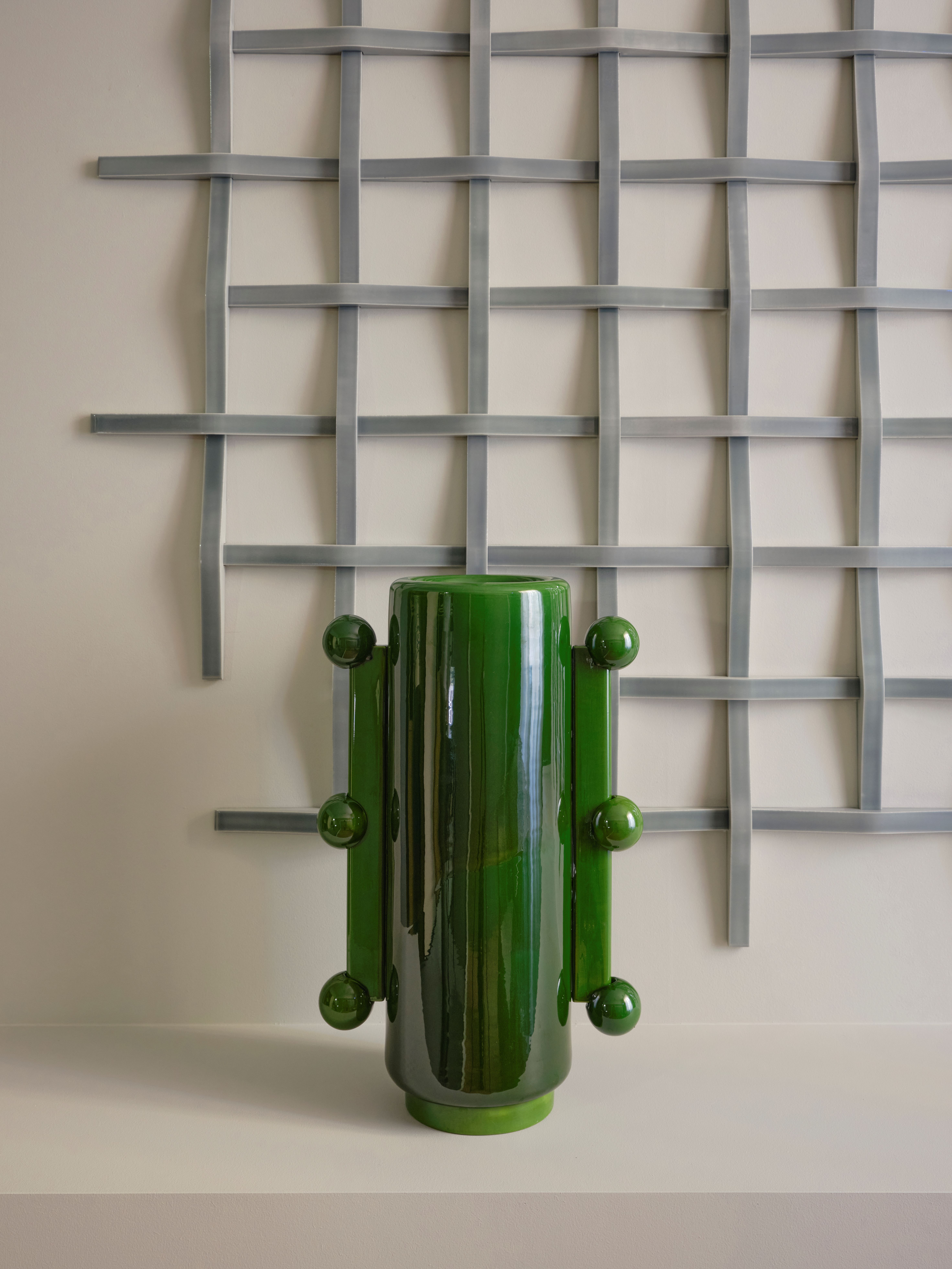
Cristina Kiran Piotti is an Italian-Indian freelance journalist. After completing her studies in journalism in Milan, she pursued a master's degree in the economic relations between Italy and India at the Ca' Foscari Challenge School in Venice. She splits her time between Milan and Mumbai and, since 2008, she has concentrated her work mostly on design, current affairs, and culture stories, often drawing on her enduring passion for geopolitics. She writes for several publications in both English and Italian, and she is a consultant for communication firms and publishing houses.
-
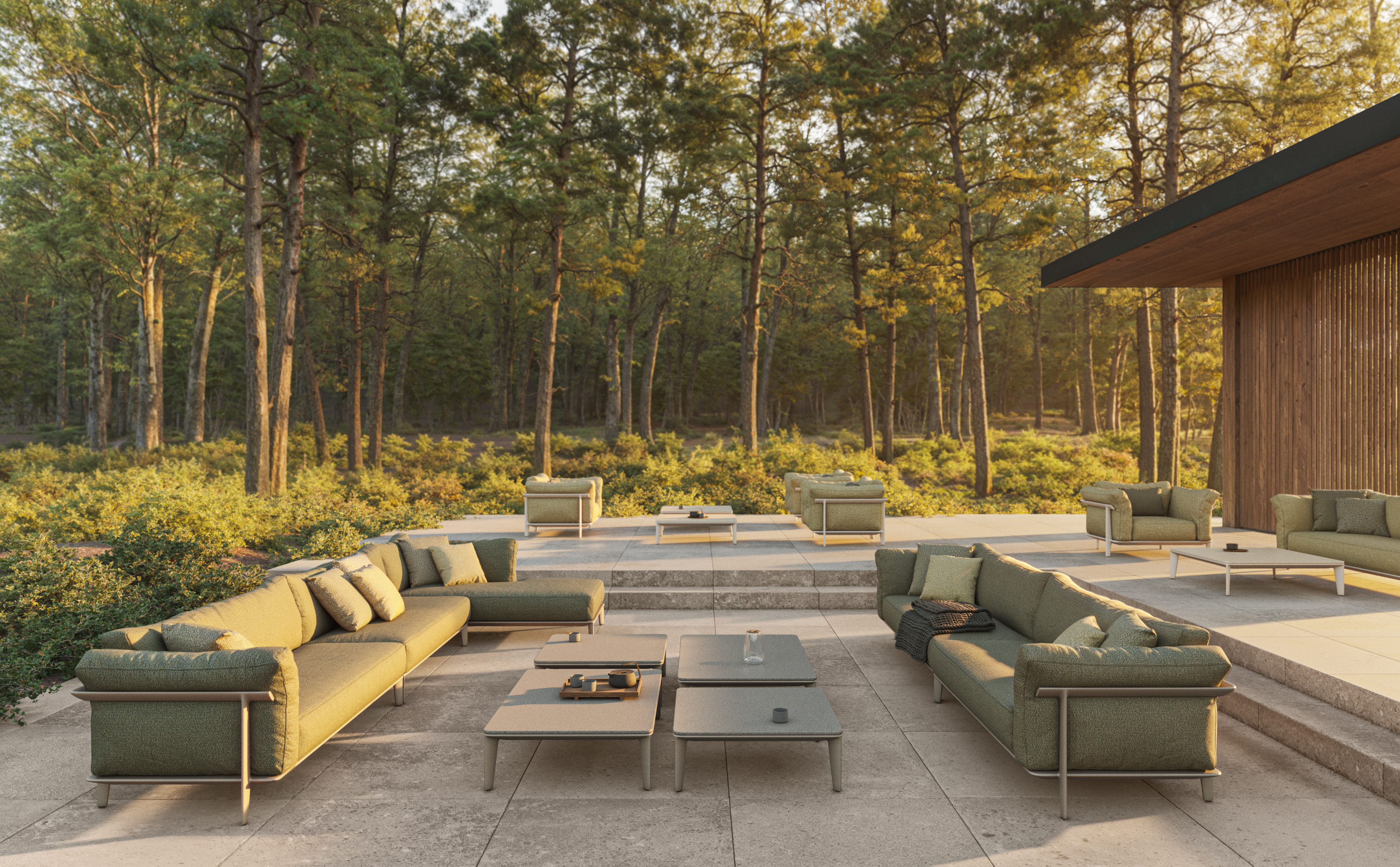 This new Vondom outdoor furniture is a breath of fresh air
This new Vondom outdoor furniture is a breath of fresh airDesigned by architect Jean-Marie Massaud, the ‘Pasadena’ collection takes elegance and comfort outdoors
By Simon Mills
-
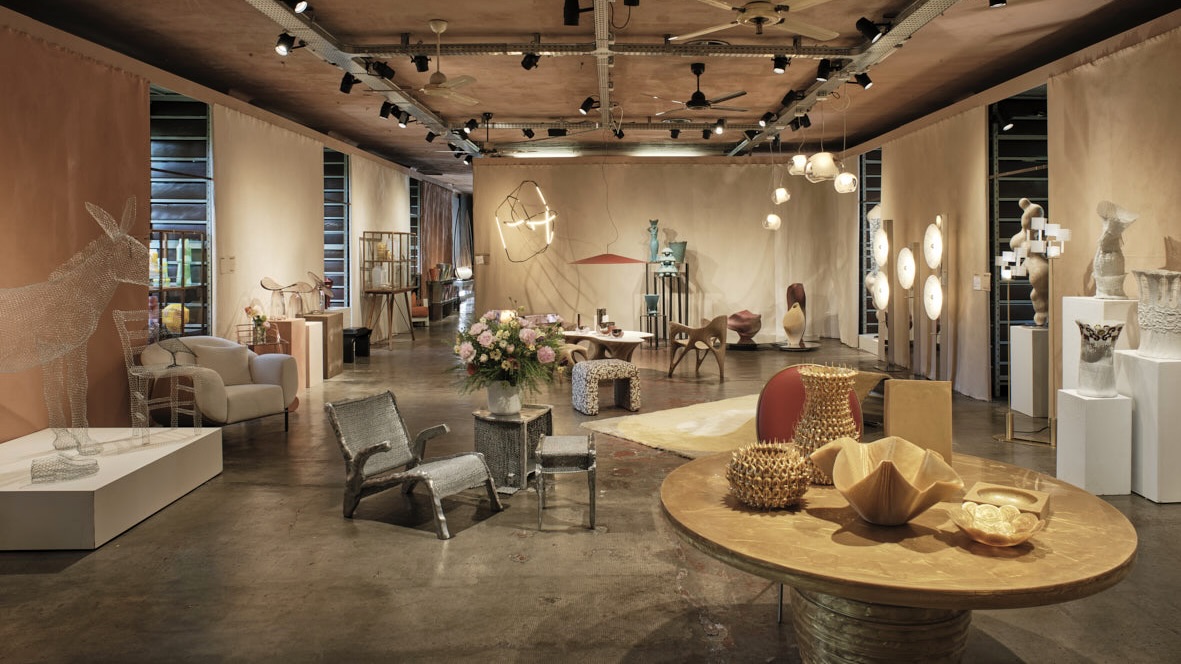 Eight designers to know from Rossana Orlandi Gallery’s Milan Design Week 2025 exhibition
Eight designers to know from Rossana Orlandi Gallery’s Milan Design Week 2025 exhibitionWallpaper’s highlights from the mega-exhibition at Rossana Orlandi Gallery include some of the most compelling names in design today
By Anna Solomon
-
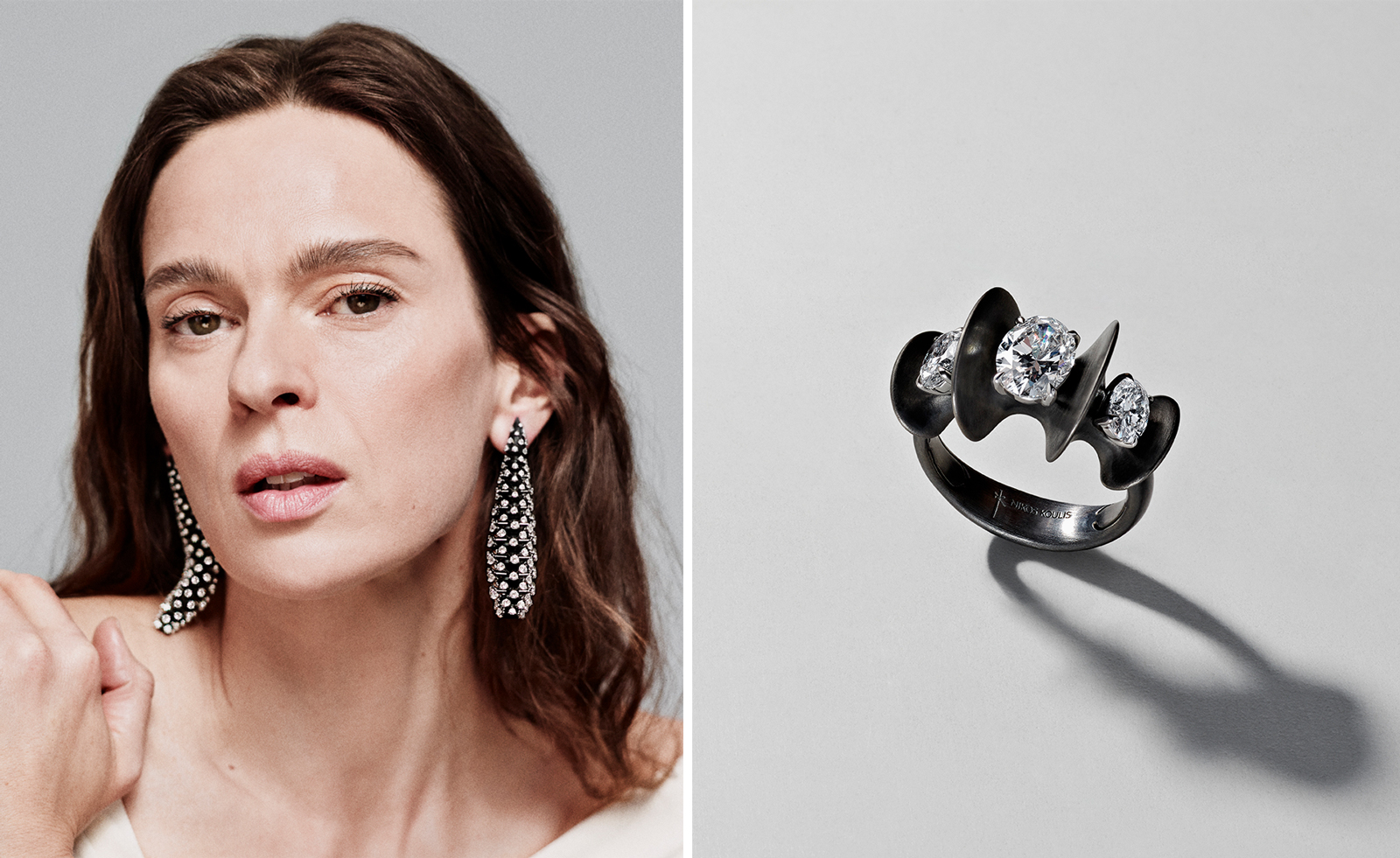 Nikos Koulis brings a cool wearability to high jewellery
Nikos Koulis brings a cool wearability to high jewelleryNikos Koulis experiments with unusual diamond cuts and modern materials in a new collection, ‘Wish’
By Hannah Silver
-
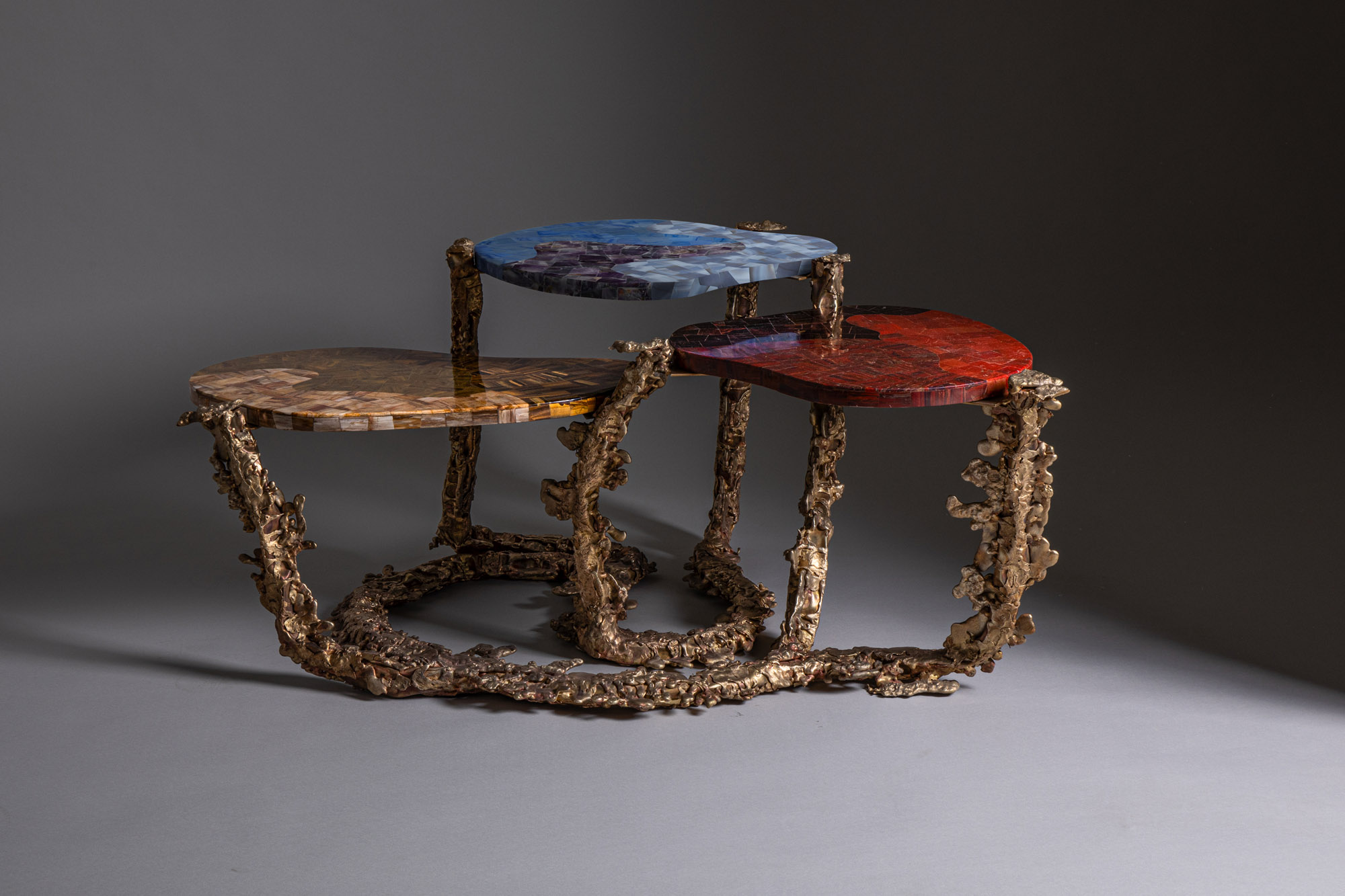 Inside the Shakti Design Residency, taking Indian craftsmanship to Alcova 2025
Inside the Shakti Design Residency, taking Indian craftsmanship to Alcova 2025The new initiative pairs emerging talents with some of India’s most prestigious ateliers, resulting in intricately crafted designs, as seen at Alcova 2025 in Milan
By Henrietta Thompson
-
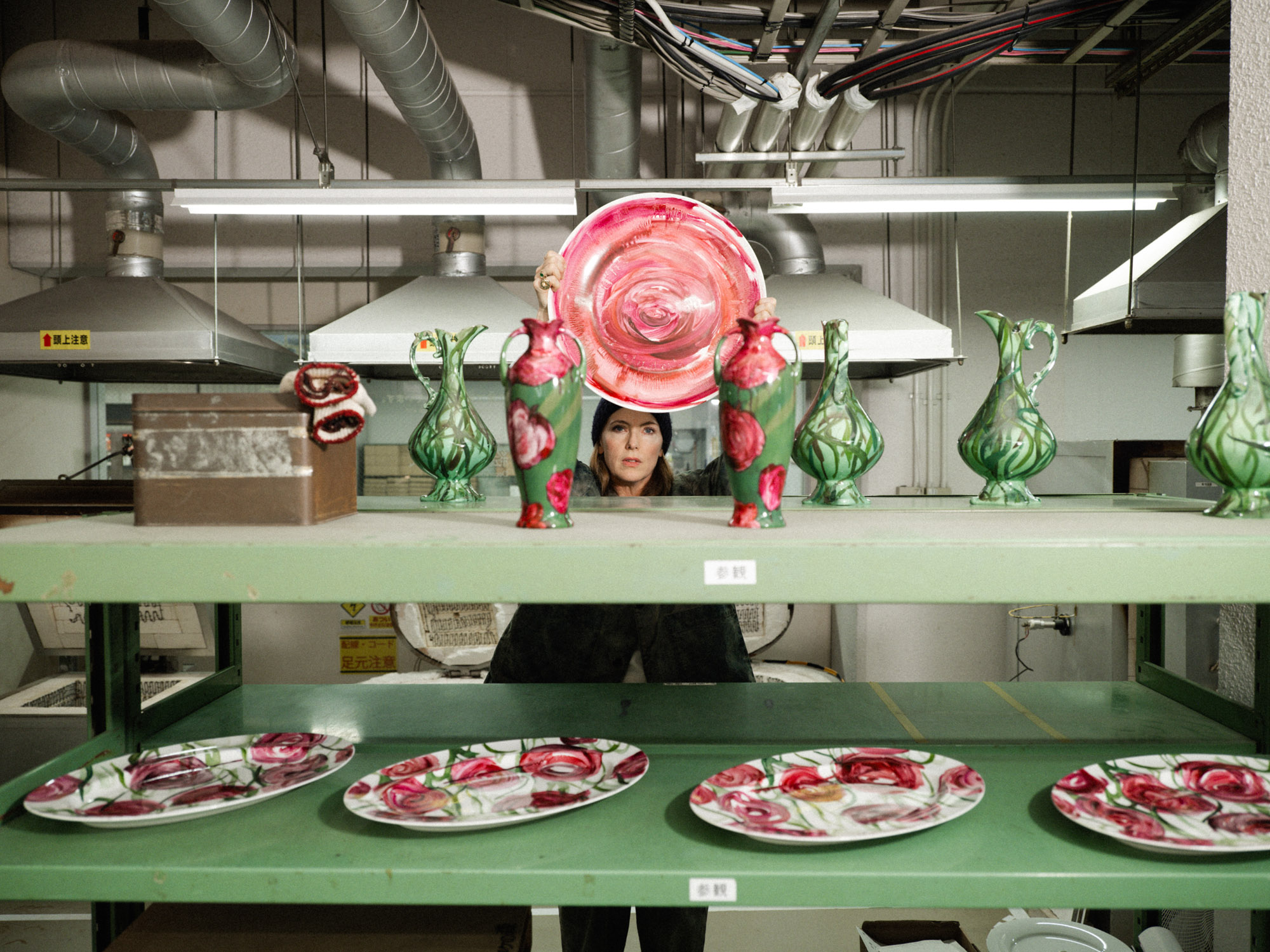 Faye Toogood comes up roses at Milan Design Week 2025
Faye Toogood comes up roses at Milan Design Week 2025Japanese ceramics specialist Noritake’s design collection blossoms with a bold floral series by Faye Toogood
By Danielle Demetriou
-
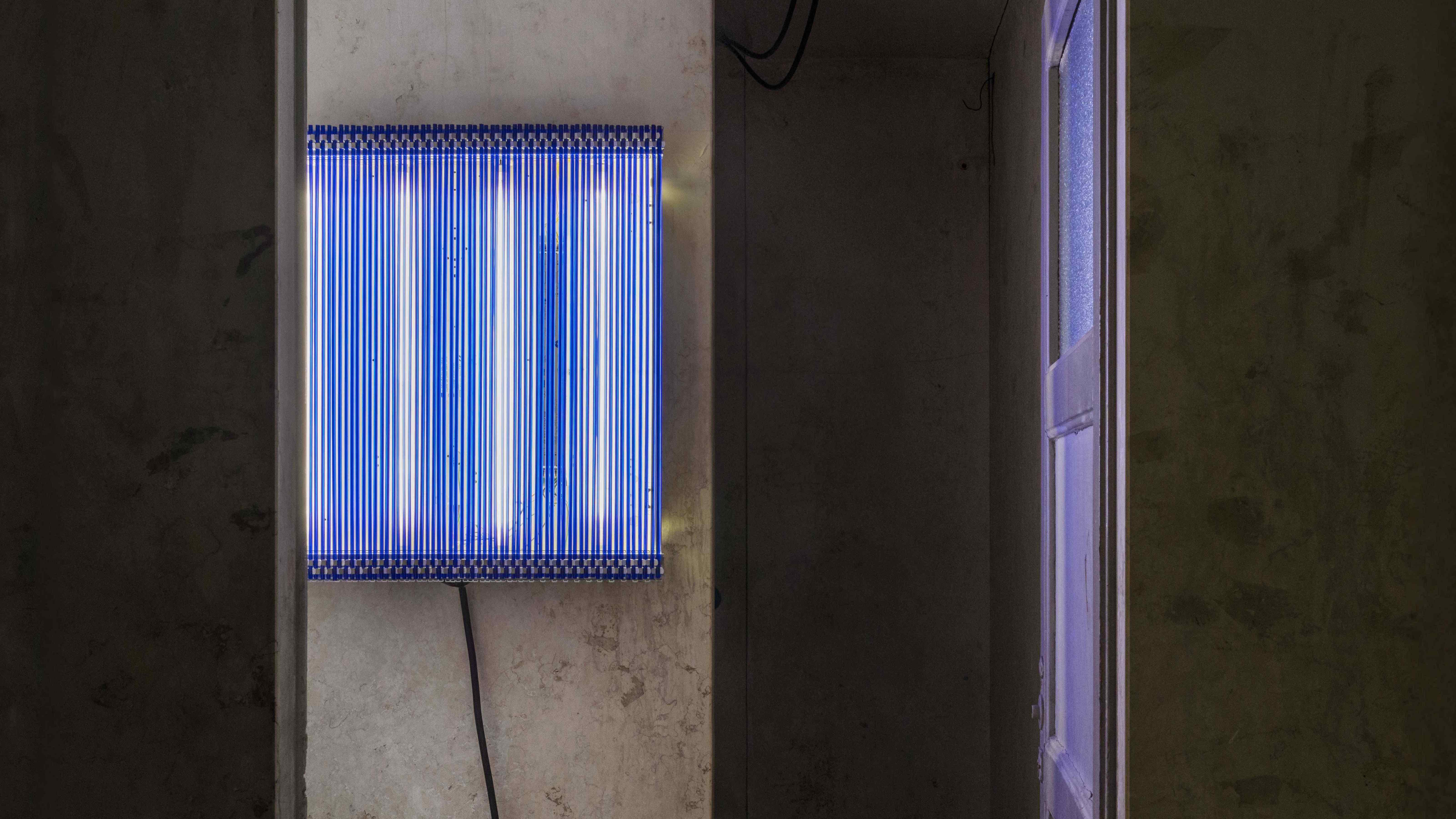 6:AM create a spellbinding Murano glass showcase in Milan’s abandoned public shower stalls
6:AM create a spellbinding Murano glass showcase in Milan’s abandoned public shower stallsWith its first solo exhibition, ‘Two-Fold Silence’, 6:AM unveils an enchanting Murano glass installation beneath Piscina Cozzi
By Ali Morris
-
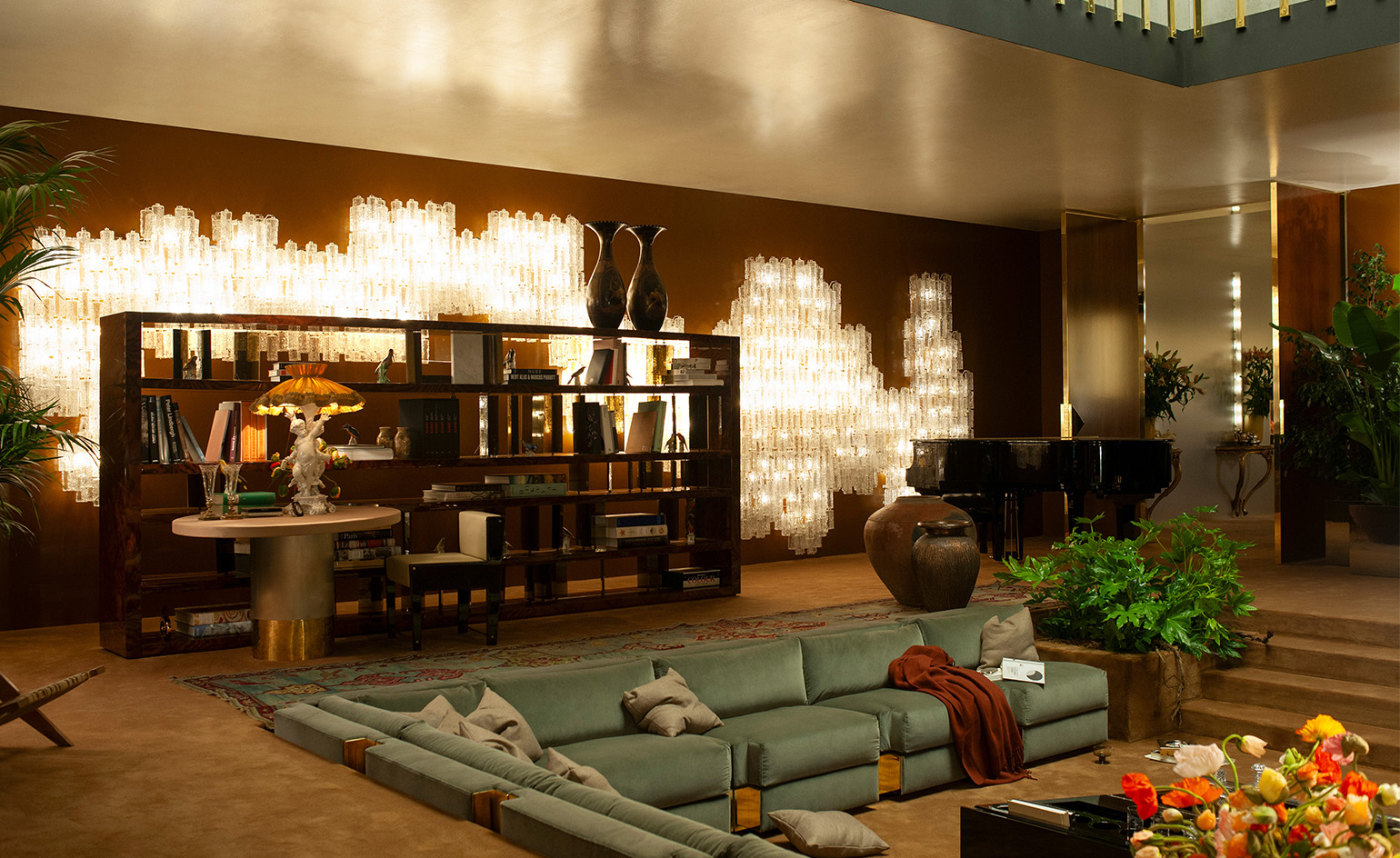 Dimoremilano and Loro Piana channel 1970s cinema in decadent Milan display
Dimoremilano and Loro Piana channel 1970s cinema in decadent Milan displayAt Milan Design Week 2025, Dimorestudio has directed and staged an immersive, film-inspired installation to present new furniture and decor for Loro Piana
By Dan Howarth
-
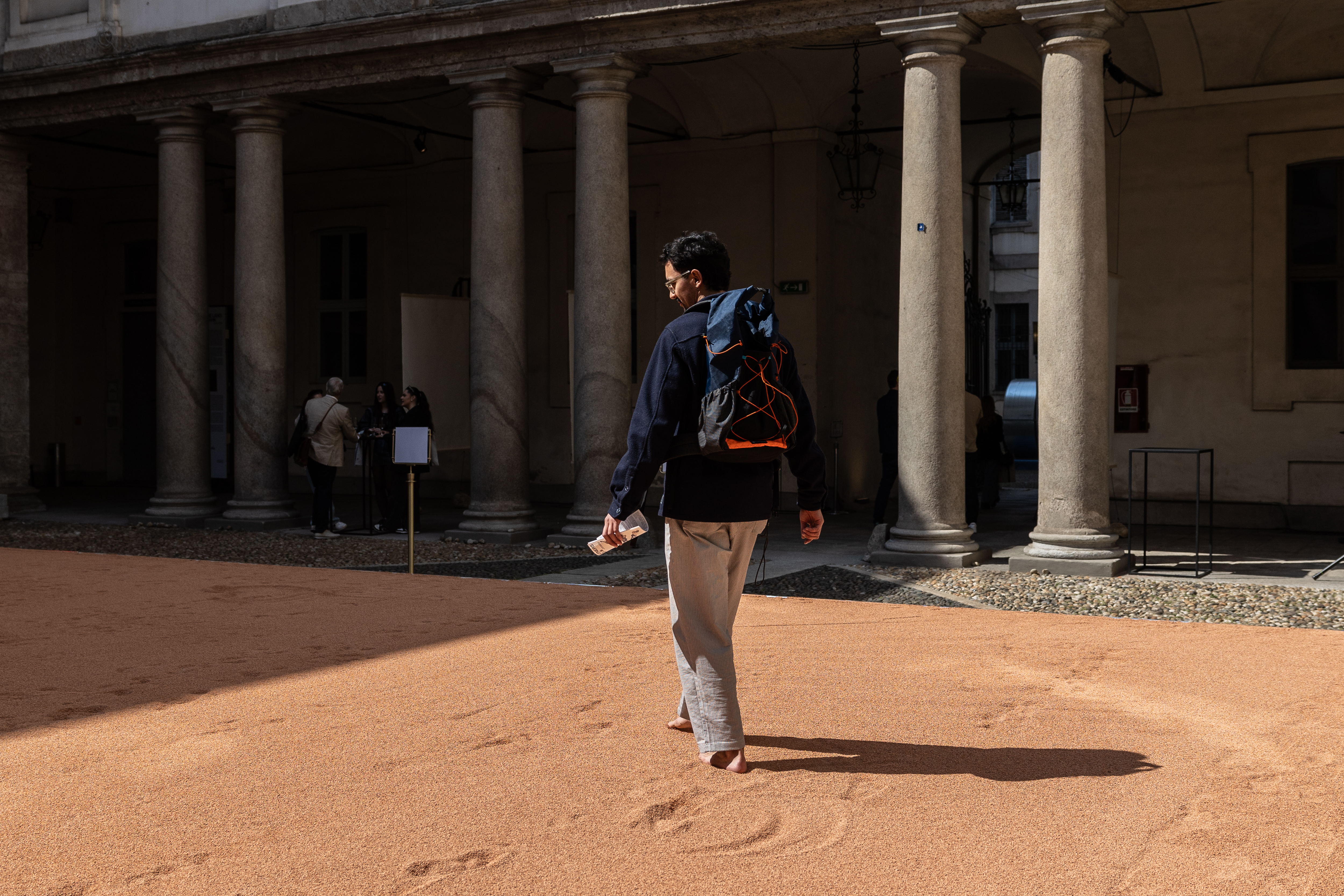 In Milan, MoscaPartners presents a poetic exploration of ‘migration’
In Milan, MoscaPartners presents a poetic exploration of ‘migration’Alongside immersive work by Byoung Cho, MoscaPartners’ Milan Design Week 2025 display features an accessible exhibition path designed for visually impaired visitors
By Cristina Kiran Piotti
-
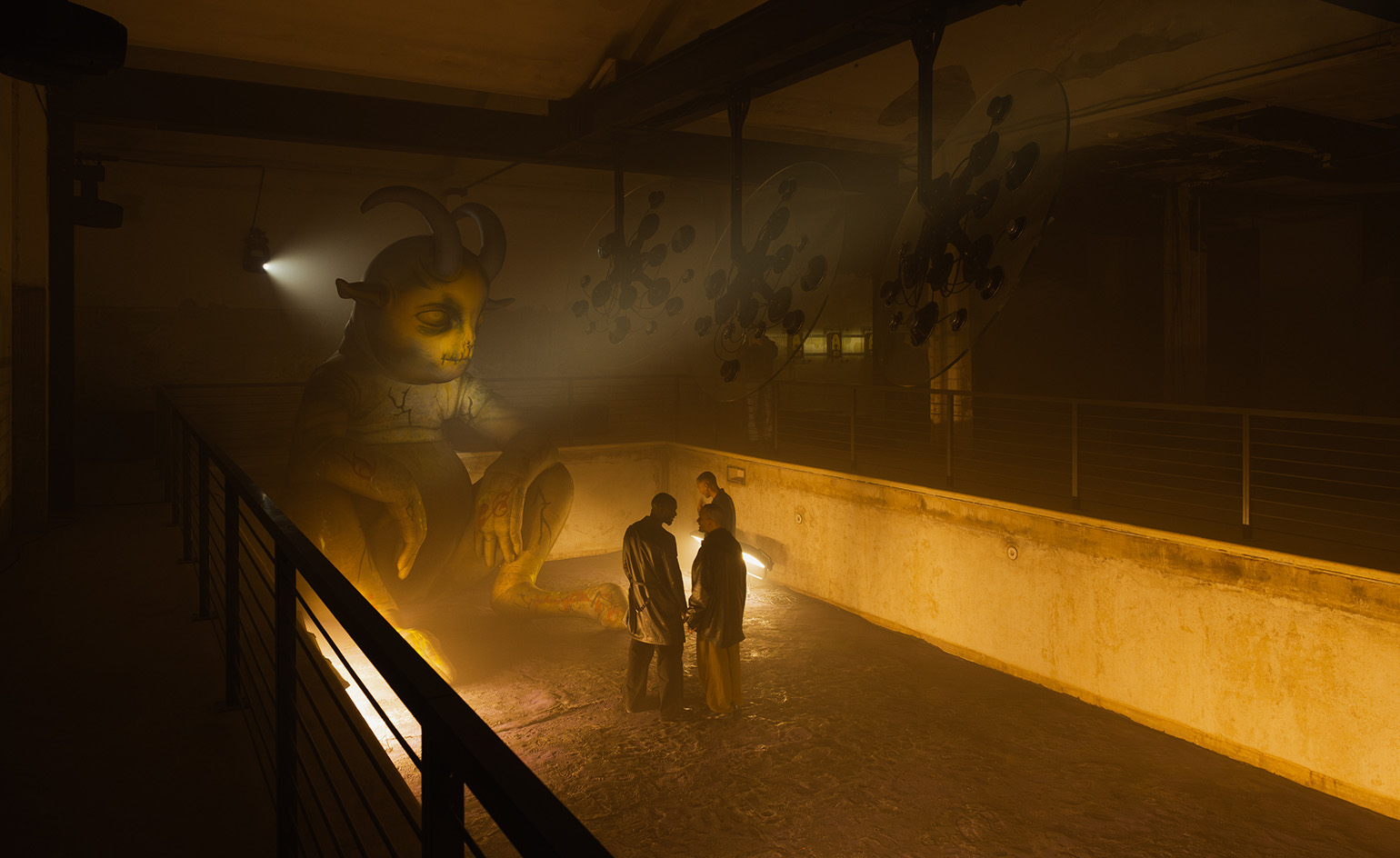 The making of PAN and Nike’s euphoric, club-inspired collaboration at Milan Design Week
The making of PAN and Nike’s euphoric, club-inspired collaboration at Milan Design WeekAlongside a new Air Max 180 release, ‘The Suspended Hour’ display sees Berlin record label PAN imagine the unfolding of a club night, from dusk until dawn
By Craig McLean
-
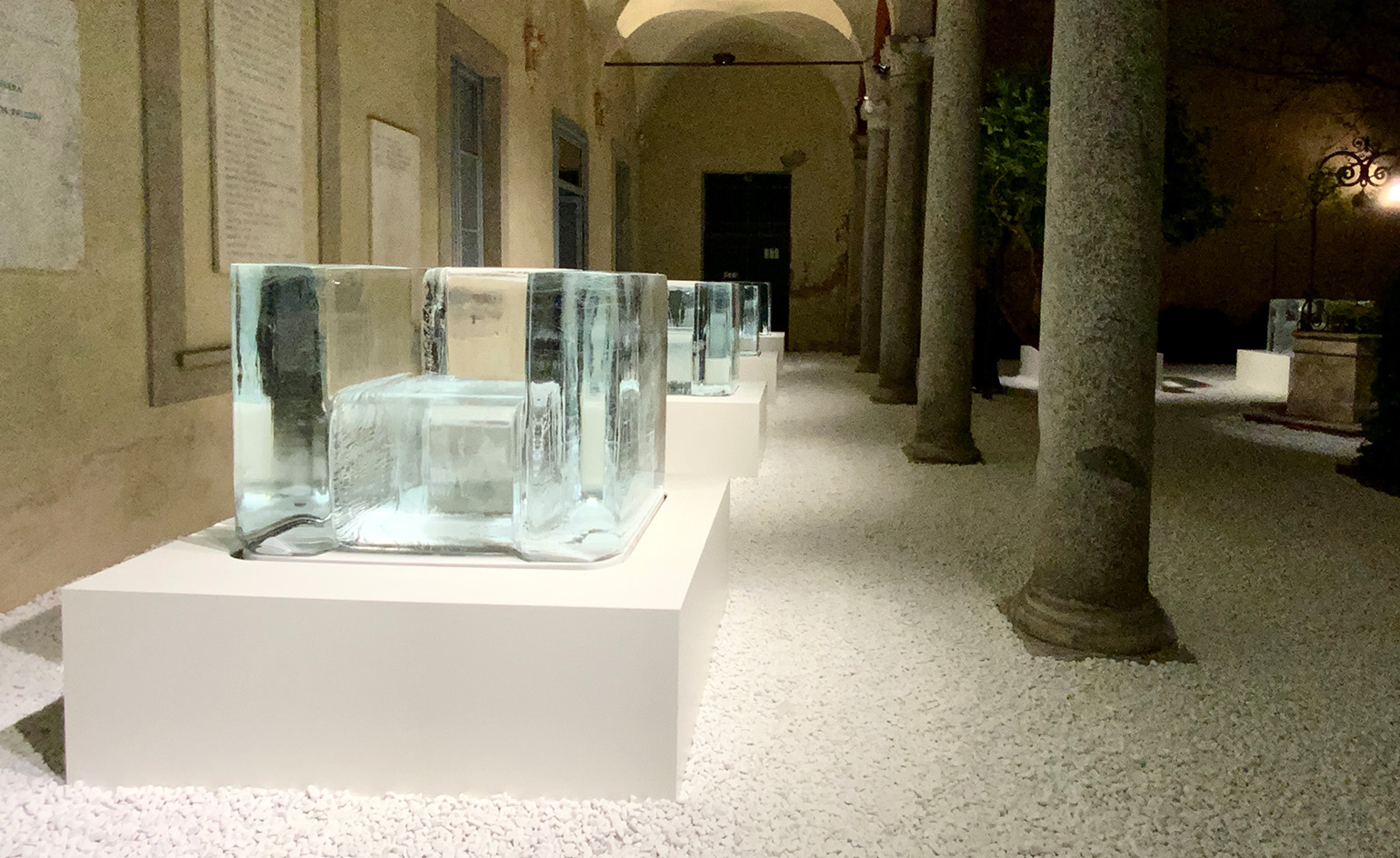 Tokujin Yoshioka’s ephemeral ice furniture is made to melt in Milan
Tokujin Yoshioka’s ephemeral ice furniture is made to melt in MilanTransparent chairs of frozen water slowly disappear during Milan Design Week 2025, in an expression of light by Japanese artist Tokujin Yoshioka
By Danielle Demetriou
-
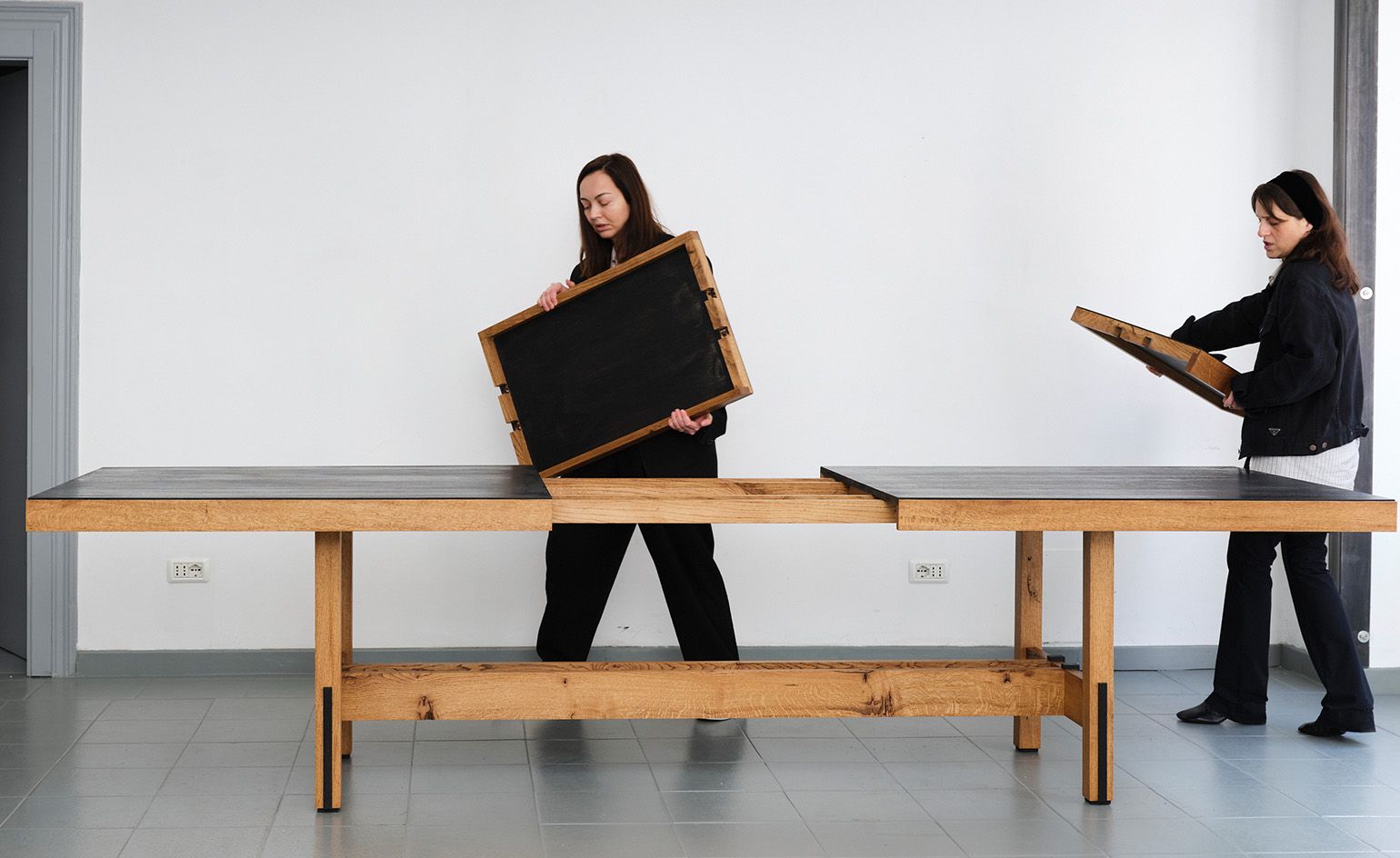 In Milan, Rooms Studio examines Georgia’s shifting social landscape
In Milan, Rooms Studio examines Georgia’s shifting social landscapeExpandable tables that reference recent government protests and lamps held together with ‘chewing gum’ feature in the Tbilisi-based studio’s Milan Design Week 2025 installation
By Dan Howarth